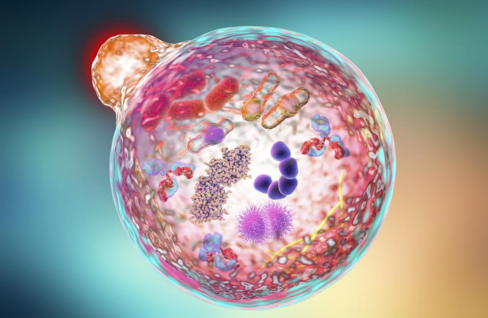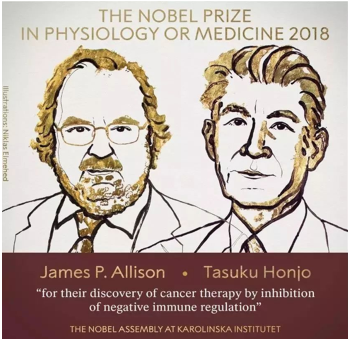CAR-T Cell Therapy Targets
Related Symbol Search List
- CA9
- CD19
- CD22
- CD274
- CD33
- CD38
- CD5
- CD7
- CD70
- CEACAM5
- Cldn18
- CTAG1B
- EGFR
- Her2
- ERBB2
- FAP
- FOLH1
- FOLR1
- FUT3
- GPC3
- PIGK
- IL1RAP
- Kdr
- L1CAM
- MET
- MS4A1
- MSLN
- NCAM1
- PROM1
- PSCA
- ROR1
- SDC1
- Tnfrsf17
- TNFRSF8
- ULBP1
- ULBP2
Immunology Background
As cancer has become one of the most serious problems to human health, more and more researchers pay attention to cancer diagnosis and therapy. In normal condition, the immune system can recognize and destroy cancer cells in early development of cancer. However, once the immune system fails to recognize the alterations in cancer cells or cancer cells are actively evading the immune response, cancer will develop.
What is cancer immunology?
Cancer immunology is a branch of immunology which studies relationships and interactions between the immune system and cancer cells to understand how the immune system works or does not work against cancer. There are three major areas in cancer immunology, including the basic mechanisms of cancer immunity, engineering immune-based therapies, and developing clinical trials to study these new therapies.
Cancer immunity is the immune system that is triggered by the body's resistance to cancer. Normal people's bodies have a complete set of cancer immune system, they rely on this system to recognize "self" and "non-self" components, by recognizing tumor cells after the rejection and destruction, so as to avoid the occurrence of cancer and maintain human health. The immune system of cancer patient is very low, because cancer is tortured, patient weight drops sharply, physical strength drops, inappetence, leukocyte value is far below normal value and the immune system of cancer patients is low, so they are in a weak state. After repeated chemoradiotherapy, the patient's normal cells were killed and the hematopoietic function of the bone marrow was suppressed, which led to extremely low immune system of cancer and weak body resistance. At this time, it was easy to be infected with other viruses, leading to more serious diseases.
 Fig.1 Cancer Immunotherapy
Fig.1 Cancer Immunotherapy
What is the key to the functioning of the cancer immune system?
The immune system can respond to cancer cells in two ways: by reacting against tumor-specific antigens (molecules that are unique to cancer cells) or against tu-mor-associated antigens (molecules that are expressed differently by cancer cells and normal cells). Whether tumors of unknown cause — which account for most human tumors — express antigens that the immune system can recognize remained in doubt until the development of methods for detecting and isolating them. The advent of hybridoma technology 5 led to the development of monoclonal antibodies from mice that were immunized with human tumors. Monoclonal antibodies that reacted specifically with tumor cells were then used to characterize putative human tumor antigens. 6 Nevertheless, there were doubts that the tumor-specific antigens that mouse monoclonal antibodies could detect would be recognized by the human im-mune system.
Therefore, how to make it easier for the human immune system to recognize cancer cell specific antigen, or make the cancer cell surface specific antigen fully exposed, has become a very critical issue in cancer immunology.
The recognition of cancer specific antigens is of particular interest in the field and can drive the development of effective targeted therapy, for example, developing new vaccines, new antibodies and tumor marker-based diagnostic kits for rapid diagnosis. As a primary manufacturer of recombinant proteins, Creative Biomart provides recombinant proteins of several sources, grades and formulations for cancer immunology research applications.
Other factors affecting cancer immunity
In addition to the problem of tumor-specific antigen recognition, there are other reasons that affect the role of the cancer immune system.
If you think of the human body as a city, cancer cells are the enemy infiltrating the body to wreakhavoc, and the immune system is the soldier protecting the city. In cities, there are a number of Immune checkpoints, which can be understood as Immune response checkpoints that tell the Immune system whether something is really at risk and whether it needs to be protected. Immunoassay sites require a balance between complex positive and negative feedback. Both the ability to activate the immune system to keep the body healthy by removing pathogens or its own mutated cells (" throttle proteins ") and the ability to prevent the immune system from overreacting and attacking its own cells and tissues (" brake proteins ").
In the regulation of throttle protein and brake protein, which protein is more active, this one that dominates the immune system. Many autoimmune diseases such as lupus erythematosus, the root cause of the disease is that the patient's immune cells frantically attack their own tissues, causing excessive inflammation of the skin and other tissues, and killing many functional cells that should not be cleared. Why doesn't the body's immune system fight off aggressive cancer cells? This is because cancer cells, in order to avoid the immune system attack, usually highly activated brake protein, resulting in the throttle protein unable to send the immune signal, so the immune system ignore cancer cells.
The brake proteins ctla-4 and pd-1 were discovered by American immunologist James Allison and Japanese biologist Tasuku Honjo, respectively. Subsequent studies have shown that simply inhibiting the activity of the brake protein causes the immune system to multiply and attack tumor cells. This led to the development of immunocheckpoint inhibitors, or the drugs that mean suppress "brake proteins," opening the way for the body's own immune system to fight cancer. James Allison and Tasuku Honjo Shared the 2018 Nobel Prize in physiology or medicine for their work on cancer immunotherapy.
 Fig.2 Winner of the 2018 Nobel Prize in physiology or medicine
Fig.2 Winner of the 2018 Nobel Prize in physiology or medicine
References:
1. Finn O J. Cancer immunology[J]. New England Journal of Medicine, 2008, 358(25): 2704-2715.
2. Old L J. Cancer immunology: the search for specificity—GHA Clowes Memorial lecture[J]. Cancer research, 1981, 41(2): 361-375.
3. Mapara M Y, Sykes M. Tolerance and cancer: mechanisms of tumor evasion and strategies for breaking tolerance[J]. Journal of Clinical Oncology, 2004, 22(6): 1136-1151.

